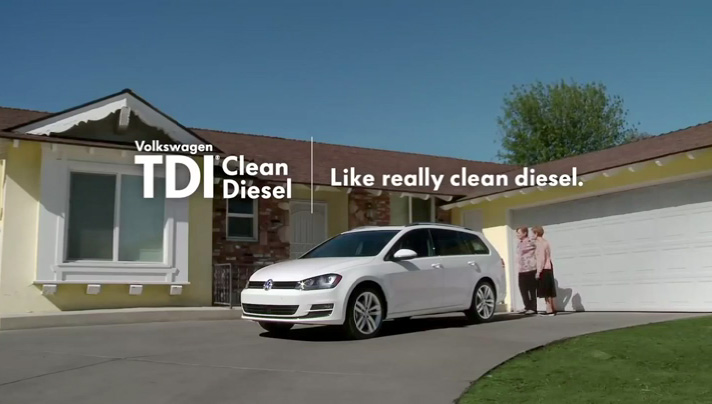The Volkswagen Group has reached agreement on another part of its diesel emissions scandal in the United States, at least as far as regulators are concerned.
Having already settled with EPA officials and its customers regarding its 2.0-liter and 3.0-liter diesel engines—which in 2015 were found to use “defeat device” software to hide their true emission levels from regulators—the German automaker said it had reached a settlement with the Justice Department and Customs and Border Protection regarding criminal misconduct tied with the scandal.
UPDATE: VW released a statement on the evening of January 10 saying such an agreement was substantially completed. A further announcement that it had been agreed to by all parties was released midday on January 11. We have revised this article accordingly.
The plea deal requires VW to plead guilty to three felony counts, pay a criminal fine of $2.8 billion, and operate under the oversight of a court-appointed independent monitor for three years. The monitor will "assess, oversee and monitor the company’s compliance with the terms of the resolution, including measures to further strengthen VW’s compliance, reporting and monitoring mechanisms and implementation of an enhanced ethics program."
VW also agreed to pay combined penalties of $1.45 billion to settle civil claims under U.S. customs and environmental laws. It will pay a further $50 million to the Justice Department to settle additional claims. The company notes that it "specifically denies any liability and expressly disputes" those claims, levied under the Financial Institutions Reform, Recovery and Enforcement Act (FIRREA), but had agreed to settle them to avoid the cost and uncertainty of continuing litigation.
The overall agreement applies only to the company's liabilities under U.S. law. It also does not end justice department investigations into actions taken by individual executives and employees, nor does it affect ongoing investigations by the Munich and Braunschweig public prosecutors' offices in Germany.
The company said it would not comment on the status of the report prepared after an internal investigation by the U.S. law firm Jones Day, so as "not to prejudice or otherwise impede ongoing investigations." That report was shared with the Justice Department, and a statement of facts accompanying the department's settlement "draws upon" material from the report, which has not been released to the public.
VW's agreement to plead guilty to felony charges contrasts with deferred prosecution agreements made by the Justice Department with General Motors Company [NYSE:GM] in 2015 over defective ignition switches linked to 124 deaths. In 2014, Toyota also received deferred prosecution after concealing information about sudden acceleration cases. GM ended up paying $900 million, while Toyota paid $1.2 billion; VW's fines total $4.3 billion.
The latest settlement will still need to be approved by a judge.

Volkswagen TDI 'clean diesel' television ad screencap
In a statement, VW said that the additional cost of the agreement will take it above the 18.2 billion euros (approximately $19.2 billion) it has set aside to handle the scandal.
In related news, one VW executive has been arrested by the FBI over the scandal. That executive is Oliver Schmidt, who was arrested on Saturday while on vacation in Miami and been charged with defrauding the U.S., wire fraud, and violating the Clean Air Act.
Former VW engineer James Liang pled guilty last fall to violating the Clean Air Act and conspiracy to defraud the U.S. government. But Schmidt's arrest marks the first time that a VW executive has been charged with criminal behavior in connection with the scandal.
According to the filed complaint, which you can read here, Schmidt was aware of the defeat device well before the scandal became public and even briefed more senior VW executives that the automaker could face criminal charges. Those senior executives, who weren’t named, decided not to disclose the defeat device, the complaint states.
Crucially, the accusations in the complaint run counter to VW’s stated timeline for its senior executives’ knowledge of the scandal. The automaker in court documents has maintained that senior executives did not learn of the wrongdoing until early September 2015, when the scandal went public.
